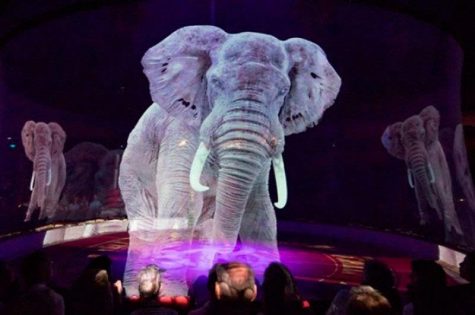Mom, can I get a pet tiger?
Society should ban the ownership of exotic animals

While some people go to the zoo to view exotic animals, others bring the zoo to their house. Throughout history people have kept wild animals as pets and companions, but should people be allowed to domestically take care of wild animals?
Recently, Netflix relaesed a documentary Tiger King: Murder, Mayhem and Madness. The documentary covers Joe Exotic, an exotic-pet owner, who was sent to prison for the attempted murder of Carole Baskin, another exotic-pet owner. Joe Exoctic is known for owning the Greater Wynnewood Zoo in Oklahoma, specializing in the ownership of big cats with over 176 tigers in captivity.
The documentary raised questions about the legal ownership of exotic animals after it was announced that Joe Exotic had killed four of his tigers. People started to wonder about the morality of the ownership of exotic animals.
Only 19 states have a comprehensive ban regarding the ownership of animals like “wild cats, large non-domesticated carnivores, reptiles, and non-human primates.” On the other hand, the other 31 states have either restrictions, licenses, or no rules at all.
People have been protesting over this matter even before Tiger King. One of the most debated cases is the use of wild animals for entertainment purposes. Animals started being used as early as 1831 by Henri Martin who used a tiger in his performance. Since then there have been signs of malnutrition, beatings into submission, and removal of natural habitats. Circus Roncalli in Germany became the first circus to now use hologram animals instead of animals to prevent the abuse of the animals. Unfortunately, circurses hide their abuse and the audiences tend to turn a blind eye.

Another major exploitation of wild animals is SeaWorld. In 2013, a documentary called Blackfish recorded the mistreatment of the orcas and was released after the death of one of the orca trainers Dawn Brancheau in 2010. The documentary covers how the babies are separated from their mothers, how several orca trainers died, and how SeaWorld released false information about the orcas to the public. The pools they are held in are four times their size which is incredibly small considering their original pool was the ocean. After the release of the documentary, SeaWorld received a major backlash from people resulting in a ban in obtaining new orcas, as well as the end of their forced breeding.
On the other, zoos are acceptable for keeping a selection of exotic animals. Zoos are known for animals that need rehabilitation, or are used as conservation centers for endangered animals. The animals used in the shows should be prohibited, but other than that, the other animals are not used for entertainment purposes. In China, many zoos are used to replenish the panda population. Since pandas are endangered, many are brought to faculties, bred, then released back into the wild.
Creating a center for conservation and rehabilitation is morally correct, but using wild animals in circuses or road side shows should be banned. The ownership of wild animals should be banned in all states, as well as the use of animals in private zoos and circuses.

Hobbies/interests: Playing guitar and painting
Fav artist: Queen
Movie you never get tired of watching: Jurassic Park
Goal for the year: Making...










